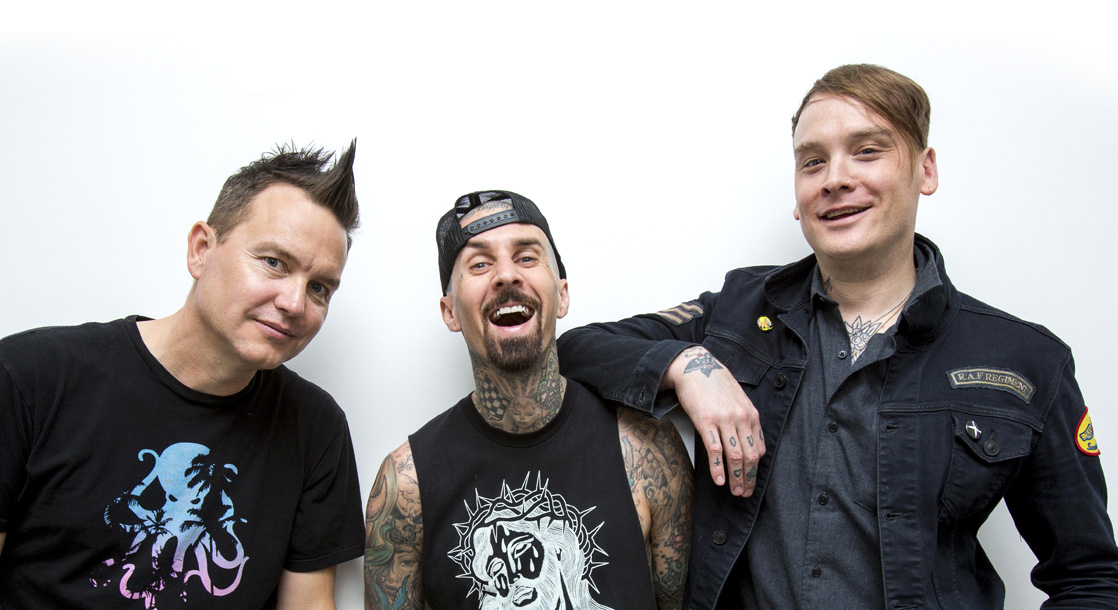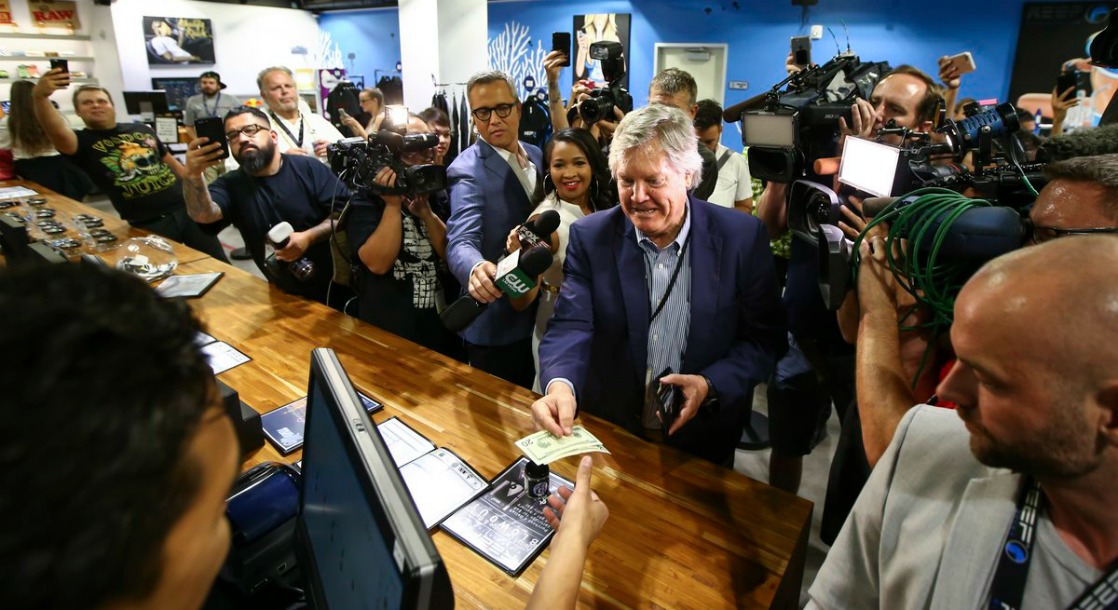San Diego loves to hate Blink. A documentary made about the city’s '90s post punk scene climaxes in interviewees expressing dismay with the band’s success. The film then cuts to an interview with former Blink darling, Tom DeLonge, who is also perplexed at why his band, instead of, say, San Diego’s Rocket From The Crypt, sold more than 35 million albums worldwide.
On Blink’s seventh studio album, California, it isn’t your millennial parents’ Blink-182. It’s Blink-182 w/ Matt Skiba, the singer and guitarist of Alkaline Trio. He replaces former guitarist and singer, DeLonge, who is busy helping to prove “Aliens Exist.”
Beneath the onslaught of glossy production and bubblegum pop, the album is deeply personal for singer-songwriter, and bassist, Mark Hoppus — now the band’s only original member. 2003’s eponymous album and 2011’s Neighborhoods featured predominantly DeLonge on vocals. In what had before been a fifty-fifty split, Hoppus was reduced to a backup singer.
On California, Mark takes center stage. In their most processed recordings ever, Skiba’s vocals feature prominently throughout the album.
Producer John Feldmann (Goldfinger) efforts to match the late Jerry Finn’s work in the studio with the band. Finn used analog sounds, and diverse techniques, on Blink albums — something California could use. Feldmann opted for a get-in, get-out approach.
Those who missed Hoppus’ vocals over the past 13 years get what they want on California. “Left Alone”, “Sober”, “Rabbit Hole” and “Los Angeles” are the best Blink-182 pop punk since Baghdad fell for the second time.
“She’s Out Her Mind”, “Built this Pool,” “California” and “Teenage Satellites” — not so much.
Teenage themes seem awkward for a man in his mid-forties. Hoppus invokes the past tense to navigate. Darker themes are also prevalent.
“San Diego” hints at drama and lost friendships in Blink-182’s birthplace: “I can’t sleep, because what if I dream of going back to San Diego. We bought a one way ticket…”
The future of Blink is unknown, the band often seems in a rush to get to the chorus throughout.
Travis Barker, whose work here is otherworldly, Hoppus and Skiba have created something over which the whole family can bond — unless you’re a grouchy San Diego post-punker from the '90s.











